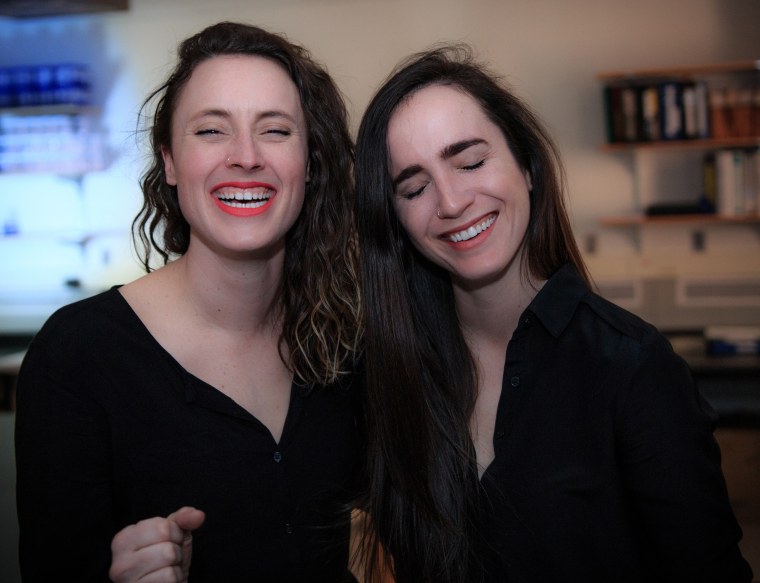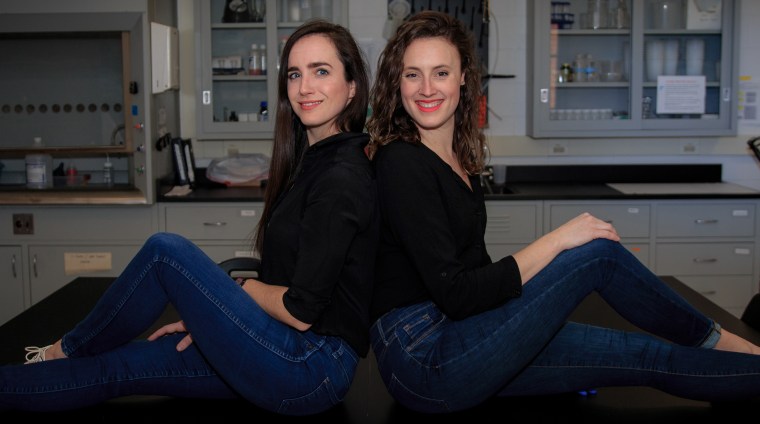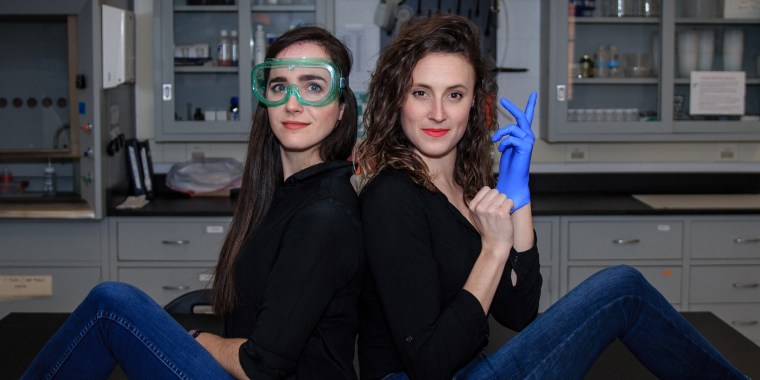In 2017, Erin Welsh, Ph.D., and Dr. Erin Allmann Updyke, Ph.D., started their podcast, “This Podcast Will Kill You,” with an episode about the 1918 influenza pandemic. They wanted to share what they knew as epidemiologists and disease ecologists and hoped that their curiosity about infectious disease would translate into a fun podcast. They had no idea how relevant that flu pandemic would be as people around the world contracted COVID-19 and it bloomed into a modern-day health emergency.
“It’s been interesting to be doing this work during an actual global pandemic,” Allmann Updyke told TODAY. “There were a lot of people who were like, ‘Whoa, we should have seen this coming.’”
While they have backgrounds in infectious disease, that hasn’t made them more prepared than anyone else when it comes to COVID-19.

“Especially in the beginning and even still now I think both of us were like, ‘We don’t know what’s going to happen,’” Welsh explained to TODAY. “We both have Ph.D.s. We both have master’s. Erin also has an MD. And so we are experts in specific subject terms of our Ph.D. But in general we can’t cover everything.”When they did encounter something about COVID-19 that they felt another expert might know more about, they would interview them for the episode. But that’s a departure from the normal structure of the podcast, which often starts with a person who experienced the condition sharing their story. Then the co-hosts tackle different aspects of the infectious disease — one of them addresses the history of the disease and the other discusses its biology. Neither of them know what the other might share so they often find themselves gaining insight during the shows.
“I always learn new things in researching for the episode and also in listening to Erin tell the history of whatever topic we’re covering,” Allmann Updyke said. “I just love so much getting to learn these new things about topics. It’s really fun.”
While the podcast has tackled infectious disease such as the flu, smallpox and chlamydia, they also cover conditions that don’t fall as neatly into the infectious disease box, such as multiple sclerosis (MS), birth control and endometriosis. The latter episode was one of their favorites.
“I thought it was going to be a history of discovery. How did we learn what the disease was? Who were the major players uncovering the different signs and symptoms related to endometriosis,” Welsh said. “It actually turned into much more of an investigation into how women are treated in medicine and have been historically and how much of the roots of that come into hysteria.”
Welsh discovered that so many women who complained of the terrible pain associated with endometriosis were considered hysterical or told that it was all in their head. This also made them reconsider how that they thought of other conditions, such as MS, which in the past was diagnosed more in men than women.
“When we look at the context of what we know about endometriosis and the history of hysteria it’s likely that women were being under diagnosed with MS and that label of hysterical was being place on them instead,” Welsh said. “That’s had a huge impact.”

The podcast also uncovered the challenges facing science communications. They admit that it's tough. The public craves clear answers but that’s not how it happens.
“Science is a process of discovery and we don’t know the answers when we start out and a lot of times we’re really far down the track and we still don’t really know what the end answer is going to be,” Allmann Updyke said. “We like things to be black and white — especially when it comes to having fast facts and catchy headlines. And that’s not the sway that science works. That’s not the way that medicine works.”
The duo makes science fun and accessible by treating it as if they’re teaching each other.
“When Erin and I research a topic we both pick very different aspects of that topic,” Welsh explained. “You never know something as well as when you have to teach it to somebody else.”
What’s more, they’re not subject experts so they’re not bogged down in a doctorate level of information about each pathogen.
“One thing I always try to do is think, ‘How would I explain this to my brother or to my mom or someone in my family?’” Allmann Updyke said.
While they’ve been hosting their podcast for five years, they’re not close to running out of topics to cover. Scientific advances still happening contribute to show ideas, such as the recent paper that noted a relationship between people who have had the Epstein Barr virus and later develop MS. Plus their listeners share ideas, too.
“People have very strong opinions about what they want to hear and that’s fantastic for us,” Welsh said. “We get so many amazing suggestions and some of them we hadn’t even considered and we’re like, ‘Wow, that is actually a really good idea. We should absolutely try to incorporate that.’”
While they try keeping the podcast educational and fun, episodes can sometimes feel really tough because the topics are “depressing and hard.”
“We’ve also had things like when we did our vaccines episodes that are really difficult because they can be very charged topics and so those are difficult to navigate,” Allmann Updyke said. “We’re being factual, but sometimes being factual is controversial.”
